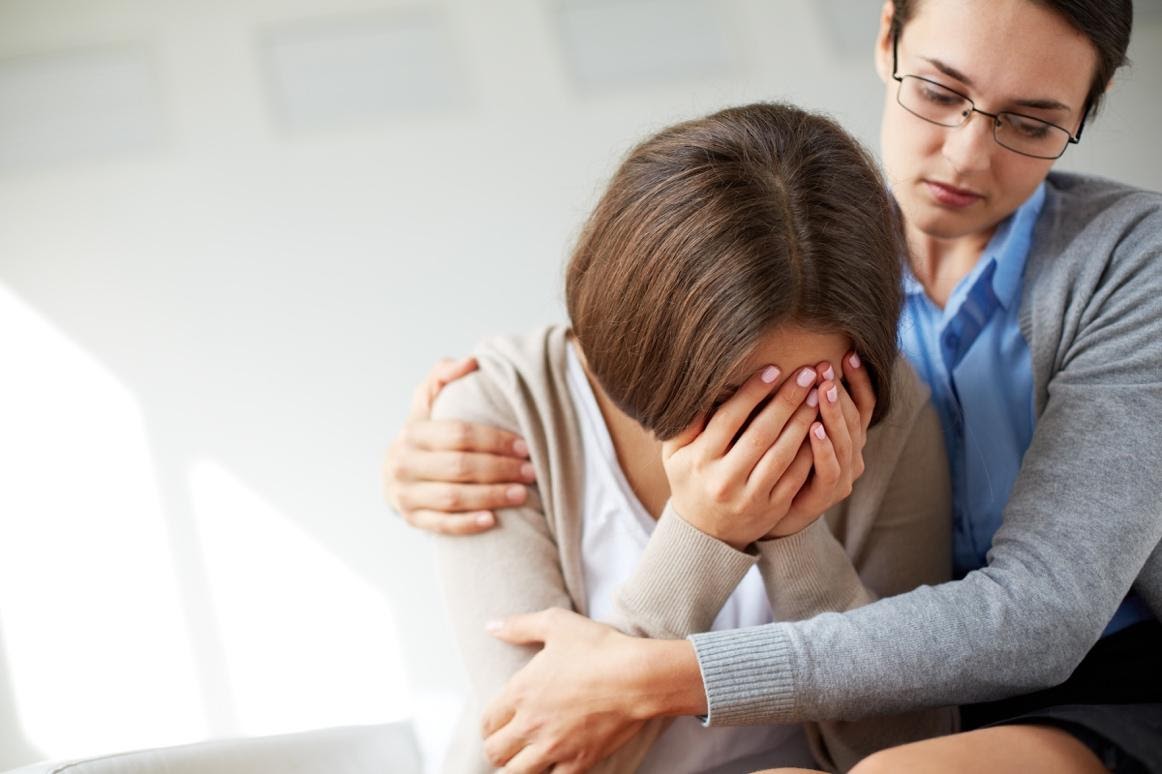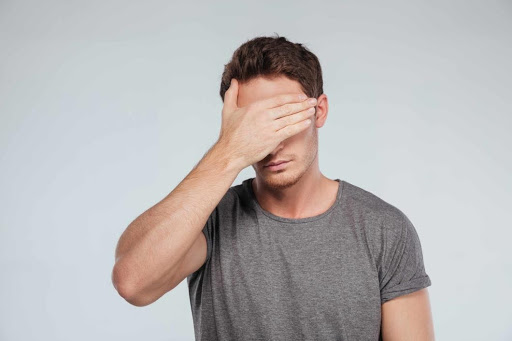According to Dr. Dadson, shame and guilt can create a vicious cycle in the psyche
Michael Dadson, Ph.D., is Senior Clinical Director of Practice, Gentle Currents Therapy – Counselling and Neurofeedback Therapy, located in Langley, British Columbia, and has been a professional counsellor for over 35 years.
The psychologically destructive effects of guilt and shame are manifested throughout society and are associated with a variety of mental health issues such as substance abuse, depression, anxiety, and post-traumatic stress disorder (PTSD).
Dr. Mike Dadson has worked with hundreds of patients to overcome a variety of issues, primarily addressing anxiety, depression, and PTSD. Over the years, he has become familiar with the sometimes-crippling effects of guilt and shame in the human psyche.
Dr. Dadson’s guiding principles shed some light on his approach to clients who battle emotions such as shame, guilt, and accompanying feelings of worthlessness. According to Dadson:
- All people possess intrinsic worth and have the capacity to realize this.
- All individuals are worthy of respect. My therapy space is one of acceptance and safety. Gender, race, sexual orientation, age, religion, relationship and family status pose no barrier to the therapy process.
- Everyone has the ability to change; readiness depends on each individual.
Dr. Dadson agrees: guilt and shame can be good (for society)
Human beings have evolved to thrive in groups and have innate emotional “wiring” to promote our survival in these groups. While today, we may consider that guilt and shame are negative or destructive emotions, they do have a benefit for society: they “punish” behaviours which are not condoned by our respective cultures.
Guilt and shame can be viewed as emotions which function as “firmware” for human behaviour, modifying our behaviours so that we conform to societal norms. We learn socially sanctioned behaviours from the time we become aware as children, and when we deviate from those sanctioned behaviours, shame and guilt can be the consequence.
According to psychologytoday.com, dogs (who are “wired” to coexist with humans) may also be capable of emotions such as guilt, shame.. and even pride:
“We need more research to really know so right now we should keep the door open.”
People who enjoy pet-shaming memes and videos on social media will likely agree that dogs do appear to have the capacity for shame and guilt when they are being held accountable for obvious contraventions of house-rules, in their owners’ absence.

Different types of guilt are reactive, anticipatory, and existential guilt according to an article on goodtherapy.com.
Yet another way to look at guilt is “adaptive” or “maladaptive”, where adaptive guilt is “helpful” in that it provides a person with an understanding of wrong behaviour. Conversely, maladaptive guilt is an enemy of mental health and is associated with chronic feelings of guilt and shame. According to the article:
“People who struggle to overcome feelings of chronic guilt may have a higher risk for depression, anxiety, or other mental health concerns. People who have mental health issues may, in turn, become overwhelmed by guilty feelings about their mental state or related behaviors. A person with depression who self-isolates may feel guilty for shutting out their friends but be unable to help doing so, for example.”
Anxiety exacerbates guilt; guilt can lead to depression, says Dr. Dadson
Anxiety, guilt, and depression can lead to self-perpetuating, cacophony of “voices” inside a person’s head, where anxious feelings magnify feelings of guilt, and in turn guilt can be associated with depression.
According to healthyplace.com:
“Guilt is a distressing effect of anxiety. Guilt is the uncomfortable experience of self-flagellation for thinking, feeling, doing, and generally just existing, wrong (These Awful Effects of Anxiety Must Stop). Anxiety is the loud, critical voice in our head that provides a running commentary on the things we do wrong (wrong from anxiety’s perspective, that is). As if it weren’t bad enough to worry, fret, and fear that we’ve done something wrong, anxiety takes our discomfort to a new level. A very distressing effect of anxiety is guilt.”

Mike Dadson sees clients who suffer with anxiety and depression in his Langley, British Columbia clinic, Gentle Currents Therapy and Neurofeedback. In situations where a client is becoming overwhelmed with feelings of guilt, inadequacy, or shame, Dadson advises:
“Remember to treat yourself with respect, empathy, and compassion. How harshly would you judge someone else for this? Try not to be harder on yourself than you would be on someone else. It is more common than you might think.”
Guilt and hopelessness can be symptoms of depression, according to Michael Dadson
According to heartcenteredcounsellors.com intense feelings of guilt can be a cause of depression. At the point where you are unable to quell the negative mental state you find yourself in, it is important to seek professional help:
“Some feelings of intense guilt can be deep rooted in our past and in our psyche and identifying and interpreting them can be next to impossible without professional help. Trying to break the control that these negative thoughts and feelings are having over your life may not be something you’re currently able to do it alone, and a qualified counselor may be your best option.”

Depression, in its acute form, known as Major Depressed Disorder (MDD), can be recognized by a diverse set of symptoms, among them, guilt and hopelessness, according to the National Institute of Health:
“Depressed mood or dysphoria is the primary feature of major depressive disorder (MDD), the most common depressive diagnosis. In addition to this core experience, there are several other symptoms of MDD, including loss of interest in activities, sleep and appetite changes, guilt and hopelessness, fatigue, restlessness, concentration problems, and suicidal ideation.”

An article on mayoclinic.com describes one of the symptoms of Major Depressive Disorder (MDD) as:
“…Feelings of worthlessness or guilt, fixating on past failures or self-blame”
Whereas guilt and shame are part of the human condition and experienced by nearly everyone, it is the fixation on past failures or shortcomings which is the pathology.
Says Dr. Dadson:
“The feeling of “being stuck” is very common and can be a compelling reason to seek clinical counselling.”
Depression and guilt – chicken and egg
Countless articles and papers link guilt and depression, but it is unclear whether one causes the other, exacerbates the other, or is caused by the other. Clinical counsellors are trained to lead clients to their own self-understanding with talk therapy. With guidance and support from a clinical counsellor, entrenched psychological symptoms and major emotional problems can be addressed and return you to a healthier mental state.
Talking about feelings of guilt can be extremely painful, but equally helpful in treating mental health issues, but part of the human psyche may be the need for confession and absolution.
According to thecorrespondent.com, depressed patients may grapple with overwhelming and sometimes irrational guilt:
“Patients with depression can be overwhelmed by guilt even when it makes no logical sense. In psychology parlance, this is overgeneralised guilt.”
Dr. Michael Dadson advises:
“Remember to be kind to yourself. Guilt can be healthy, when it is reminding you of your ethics and moral code, but shame is never good for you because it is as though this emotion is trying to tell you who you are, in a negative way. Always remember that you do have intrinsic worth as a person. Nothing can take that away.”
According to kusnachtpractice.com:
“As for signs and symptoms, women are more likely than men to experience pronounced feelings of guilt, sleep excessively, overeat, and gain weight. Women are also more likely to suffer from seasonal affective disorder.”
According to Dr. Dadson, gender differences can be very pronounced when treating clients for anxiety, depression, and PTSD:
“I have a focus on gender role trauma. Knowing how men and women process emotions differently helps me when counselling either men or women. It also translates well to couples counselling. Whereas women are more likely to internalize trauma and present with anxiety or depression, men tend to have more PTSD, anger management and substance abuse issues.”
Guilt is about behaviour; shame is about identity, explains Dr. Michael Dadson
Whereas guilt is an emotion felt in reaction to a wrong act committed by a person, shame is a more overarching emotion, tied to a person’s overall identity. A smoker who is quitting may feel guilty about smoking the last cigarette but feel shame about “being a smoker.” A person may feel guilty about having stolen something but feel shame about “being a thief.” A mother can feel guilty about snapping at her child but feel shame about “being a bad mother.”
Both of these emotions can be addressed in clinical counselling, and part of healing is self-forgiveness. According to Dr. Michael Dadson:
“In order to address feelings of guilt and shame, a person needs to acknowledge the origin of the feeling, be it an act, or just a fact, accept the information, take personal responsibility and then treat that ownership of the feelings as a starting point toward new, better behaviours. We need to remember that nobody has perfect behaviour and understanding human imperfection can help us in our relationship with ourselves and with others too. Forgiveness can be a very good medicine, whether we are forgiving ourselves or others.”
An interesting article in psychcentral.com tells the story of one woman’s experience with shame which threatened her mental health with anxiety and depression:
“This is internalized shame. It lurks in the unconscious, undermines self-esteem, and creates anxiety and havoc in our lives. The magnitude of feeling different, inadequate, or inferior can be unbearable. It’s the feeling of being a bad, unworthy person. Toxic shame sabotages our relationships and our success. It can be chronic and take over our identity and ability to enjoy life, chipping away at trust in ourselves and the world.”

Shame and depression – linked to uncompleted / inadequate work:
A good example of the self-perpetuation of guilt, shame, depression, and anxiety can be found in the workplace, or in aspects of a person’s self-administration (house-cleaning, filing taxes, paying bills, renewing licenses or passports on-time). Mistakes and incomplete work cause guilt and shame, which in turn aggravates anxiety and depression.
According to psychologytoday.com:
“…people feel ashamed of not fulfilling their obligations. They judge themselves as weak and try to stay under the radar about what they are not doing because when the tasks of life go undone the risk of being judged by others goes up. For students the judgment may be a bad grade. For an employee it may be the risk of a performance improvement plan being started (or failed). And for a homemaker, the knowledge that the family is living in a mess or not eating well adds to the self-disparagement so common to those with depression.”
Dr. Michael Dadson helps veterans suffering with guilt, shame, PTSD
The epidemic of PTSD in war veterans has been treated as a bit of a mystery over the years, most people inferring that the “stress of being in a battlefield” causes some sort of nerve damage. In fact, a large contributor to post-battlefield PTSD can be guilt, either from being a survivor when others perished, or from the act of killing, which is a trauma for non-sociopathic people.
Dr. Michael Dadson specializes in PTSD in first responders (including military) in his practice at Gentle Current Therapy and Neurofeedback, and has worked extensively with this specific kind of PTSD.
According to Dr. Dadson:
“It can be difficult to examine some of the worst memories, but in counselling, it is possible to create an emotionally safe way of ‘storing’ each memory and leaving it in its place until and unless it is a good time to take a look at it. This way, memories are not intruding into the conscious, uncontrolled and causing distress.”

According to aeon.co, returning veterans struggle with unaddressed guilt, PTST, and often, sadly, commit suicide as a result:
“…unaddressed guilt might be the most dangerous for returning veterans. A recent study by the US Department of Veterans Affairs (VA) shows that nearly two-dozen veterans are killing themselves every day, nearly one an hour. This attrition, connected at least in part to combat-related post-traumatic stress disorder (PTSD) and other war-related psychological injuries, is an enormous price to pay for avoiding the subject.”
Dr. Michael Dadson believes this to be one of society’s greatest tragedies
“I especially feel for the nurses, emergency room doctors, paramedics, firefighters, police who when they see horrific things, they feel like there is something wrong with them because they are having trouble coping and they end up hurting themselves or taking their own life.
To me it’s a tragedy to be avoided. If they could just find somebody who is a legitimate trauma PTSD professional and who understands the stresses of those jobs and who could help them find new ways of coping.
It’s such a tragedy to me and it never needs to happen, but it just keeps on happening.”
Gentle Currents Counselling and Neurofeedback is currently open for in-person clinical counselling and Neurotherapy treatments. Secure online counselling sessions are also available by appointment in case you prefer to stay at home.
Dr. Michael Dadson, PHD
Jeanette Dadson, Neurofeedback Therapist
Gentle Currents
Counselling and Neurofeedback
Belmont Centre
#109 20103 40th Avenue
Langley BC, V3A 2W3
Call/Text: (778) 554-0174
info@gentlecurrentstherapy.com


